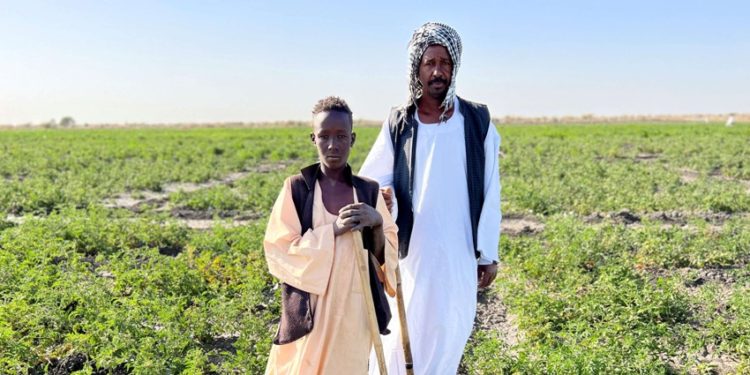By SUDAN TRIBUNE
February 19, 2024 (PORT SUDAN) – The ongoing conflict in Sudan is shrinking cultivated areas and raising fears of widespread famine, particularly in war-torn regions, a Sudanese minister warned on Monday.
Sudanese Agriculture Minister Abu Bakr Omer al-Bushra warned that the war has significantly reduced cultivated land in Darfur, Kordofan, and the Gezira region, potentially exacerbating existing food insecurity.
“The planned area for cultivation in Darfur and Kordofan was 12 million acres, but much of it remains unplanted due to the conflict and lack of labour,” al-Bushra told Sudan Tribune.
This echoes concerns raised by the United Nations, which estimates nearly 18 million Sudanese suffer from acute hunger, with 4.9 million facing emergency levels. Reports of hunger deaths have also emerged, raising fears of widespread famine.
While al-Bushra claimed 14 million acres were planted with corn and millet elsewhere, worries remain about access to areas controlled by the Rapid Support Forces (RSF).
The RSF seized control of Al-Jazeera State in December, leading to a reduction in the planned wheat acreage from 350,000 to 220,000.
Al-Bushra acknowledged the potential difficulty of delivering food aid to these regions.
Despite government assurances, experts fear the war’s impact could be dire.
Agricultural specialist Ayman Dafallah expects the conflict to cripple both rain-fed and irrigated agriculture.
“Major companies importing essential supplies have frozen their activities after the RSF takeover, leaving farmers without crucial resources,” Dafallah told Sudan Tribune.
“This, combined with infrastructure damage and rural displacement, could lead to widespread famine even with government funding.”
The International Monetary Fund further paints a bleak picture, predicting an 18.3% contraction of the Sudanese economy due to the war’s disruption of various sectors.
Dafallah urges the government to implement measures like tax breaks, loan rescheduling, and strategic reserve support to avert a catastrophic food shortage.
With approximately 80% of Sudan’s workforce relying on agriculture, the war’s impact on farmland threatens not only food security but also the livelihoods of millions.
(ST)







Discussion about this post